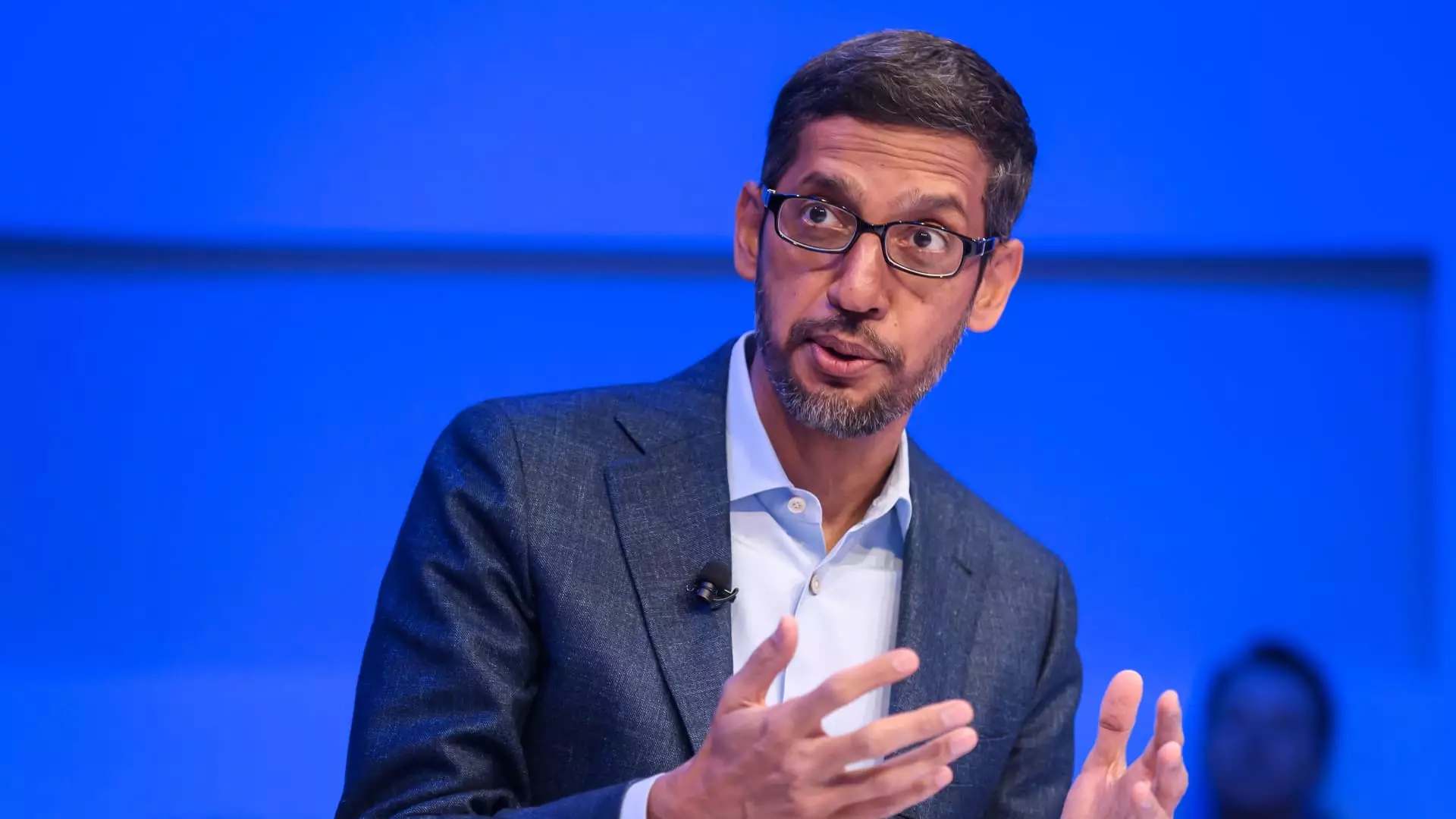In an environment characterized by rapid technological evolution and increased scrutiny, Google CEO Sundar Pichai has underscored the significance of 2025 as a pivotal year for the tech giant. At a recent strategy meeting, he emphasized that “the stakes are high,” as both competition and regulatory challenges loom larger than ever. The urgency expressed by Pichai reflects a broader industry sentiment, where businesses must adapt quickly to keep pace with advancements in artificial intelligence (AI) and changing market dynamics.
The atmosphere at the meeting in Mountain View, California, which included both in-person attendees and virtual participants, combined a festive spirit—complete with holiday sweaters—with a serious conversation about the road ahead. As Pichai noted, “We need to move faster as a company,” signaling a shift from complacency to a more aggressive approach in tackling real user problems through AI innovation. As the company braces itself for the scrutiny that comes with its size, it becomes clear that the 2025 landscape demands not only internal reflection but also a reassessment of external competitors.
While Google retains a dominant position in digital advertising and search engine markets, the emergence of generative AI has transformed the competitive field dramatically. Pichai acknowledged this shift, pointing to OpenAI’s ChatGPT as a harbinger of a wave of AI tools that are now redefining how users access online information. With companies like Microsoft backing OpenAI to an astonishing $157 billion valuation, the pressure is mounting for Google to reclaim its innovative edge.
Furthermore, the announcement of alternative search engines and AI tools by competitors such as Perplexity indicates that Google’s historical stronghold is under threat. Programs like Gemini, Google’s ambitious AI model, are aimed at addressing these challenges. Pichai articulately described Gemini as a cornerstone for future growth, aiming to attract half a billion users—an ambitious yet necessary goal for maintaining relevance in a saturated market.
Google’s recent challenges extend beyond competition; regulations and legal battles are increasingly complicating its operational strategy. The U.S. Department of Justice (DOJ) has intensified scrutiny, alleging that Google maintains an illegal monopoly in the search market and advocating for the divestiture of critical components, including the Chrome internet browser. Meanwhile, scrutiny from international regulators, such as the UK’s competition watchdog, has spotlighted Google’s ad technology practices, reflecting a global trend of heightened regulatory oversight.
Pichai’s acknowledgment of these pressures reveals a difficult balancing act: Google must innovate while navigating a labyrinth of legal challenges and public criticism. The message is clear; there can be no distraction from this urgency, and the company must strive to create a positive impact while retaining its market share.
Within this challenging context, Google is doubling down on innovation, specifically through its Gemini suite. Pichai highlighted the necessity for scaling the Gemini app, which is designed to integrate a range of AI features seamlessly. The focus on creating a “universal assistant” showcases Google’s ambition not just to participate in the AI race, but to redefine the parameters of human-computer interaction.
This ambitious vision, articulated by DeepMind co-founder Demis Hassabis during the meeting, emphasizes the need for a next-generation assistant that can operate fluently across various domains and devices. The potential for numerous applications of such technology could dramatically alter user experiences across different platforms.
As Google confronts competitive and regulatory challenges, it’s equally essential to address internal dynamics. Following significant workforce reductions—approximately six percent in 2023—Pichai championed a ‘scrappy’ culture reminiscent of Google’s early days. He invoked the resourcefulness of company founders Larry Page and Sergey Brin, advocating for innovation borne from constraints.
The call to maintain a lean and agile workforce cannot be overstated; while massive investments into AI are pivotal, internal efficiency and creativity are equally critical in shaping the company’s trajectory. Pichai’s remarks emphasize that innovation can thrive under conditions of restraint, leveraging a smaller team to yield robust solutions.
As Google gears up for what it anticipates will be a defining year in 2025, the blend of urgency, innovation, and introspection emerges as its guiding principle. While competitive and regulatory pressures may seem daunting, they simultaneously offer opportunities for growth and evolution. By focusing on solving user-centric challenges with cutting-edge technology like Gemini, and by fostering a culture that thrives on efficiency and creativity, Google is poised to navigate the complexities of the modern tech landscape. The path ahead may be fraught with challenges, but with a clear vision, Google can hope to re-establish its stronghold in the burgeoning world of AI.

